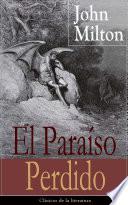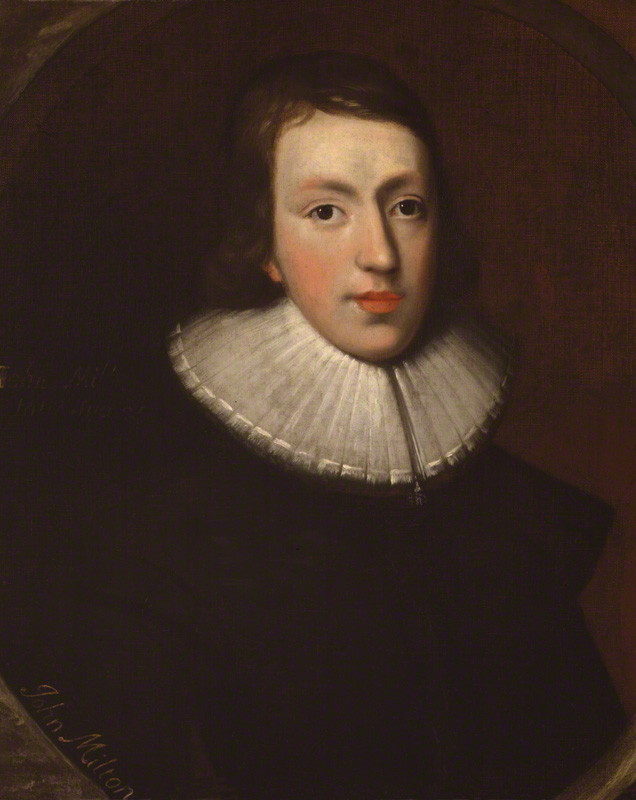Paradise Lost
Obras
Areopagítica
John Milton
El paraíso perdido
John MiltonFrases célebres de John Milton
El Paraíso Perdido
John Milton Frases y Citas
Paraiso Perdido, El - Ilustraciones de Dore
El Paraíso Perdido
As good almost kill a man as kill a good book. Who kills a man kills a reasonable creature, God's image; but he who destroys a good book, kills reason itself, kills the image of God, as it were in the eye.
Fuente: Areopagítica (discurso de Milton en 1644, por la libertad de prensa sin licencia ante el Parlamento de Inglaterra).
John Milton: Frases en inglés
“The end then of learning is to repair the ruins of our first parents.”
Tractate of Education (1644)
“Better to reign in Hell, than to serve in Heaven.”
Variante: Better to reign in Hell than serve in Heaven.
Fuente: Paradise Lost
“Wild above rule or art, enormous bliss.”
Fuente: Paradise Lost
Variante: All is not lost, the unconquerable will, and study of revenge, immortal hate, and the courage never to submit or yield.
Fuente: Paradise Lost
i.17-26
Paradise Lost (1667)
Contexto: And chiefly Thou O Spirit, that dost prefer
Before all Temples th' upright heart and pure,
Instruct me, for Thou know'st; Thou from the first
Wast present, and with mighty wings outspread
Dove-like satst brooding on the vast Abyss
And mad'st it pregnant: What in me is dark
Illumine, what is low raise and support;
That to the highth of this great Argument
I may assert th' Eternal Providence,
And justifie the wayes of God to men.
i.254-255
Paradise Lost (1667)
Variante: The mind is its own place, and in itself
Can make a heav'n of hell, a hell of heav'n.
Fuente: Paradise Lost: Books 1-2
“As ever in my great Taskmaster's eye.”
On his being arrived to the Age of Twenty-three, reported in Bartlett's Familiar Quotations, 10th ed. (1919)
“I neither oblige the belief of other person, nor overhastily subscribe mine own.”
The History of England, Book ii
Contexto: I neither oblige the belief of other person, nor overhastily subscribe mine own. Nor have I stood with others computing or collating years and chronologies, lest I should be vainly curious about the time and circumstance of things, whereof the substance is so much in doubt. By this time, like one who had set out on his way by night, and travelled through a region of smooth or idle dreams, our history now arrives on the confines, where daylight and truth meet us with a clear dawn, representing to our view, though at a far distance, true colours and shapes.
“Revives, reflourishes, then vigorous most
When most unactive deemed”
Fuente: Samson Agonistes (1671), Lines 1687-1692 & 1697-1707
Contexto: But he, though blind of sight,
Despised, and thought extinguished quite,
With inward eyes illuminated,
His fiery virtue roused
From under ashes into sudden flame,
[... ]
So Virtue, given for lost,
Depressed and overthrown, as seemed,
Like that self-begotten bird
In the Arabian woods embost,
That no second knows nor third,
And lay erewhile a holocaust,
From out her ashy womb now teemed,
Revives, reflourishes, then vigorous most
When most unactive deemed;
And, though her body die, her fame survives,
A secular bird, ages of lives.
Fuente: Samson Agonistes (1671), Lines 1687-1692 & 1697-1707
Contexto: But he, though blind of sight,
Despised, and thought extinguished quite,
With inward eyes illuminated,
His fiery virtue roused
From under ashes into sudden flame,
[... ]
So Virtue, given for lost,
Depressed and overthrown, as seemed,
Like that self-begotten bird
In the Arabian woods embost,
That no second knows nor third,
And lay erewhile a holocaust,
From out her ashy womb now teemed,
Revives, reflourishes, then vigorous most
When most unactive deemed;
And, though her body die, her fame survives,
A secular bird, ages of lives.
“Long is the way and hard, that out of Hell leads up to light.”
Fuente: Paradise Lost
“Never can true reconcilement grow where wounds of deadly hate have pierced so deep…”
Fuente: Paradise Lost
